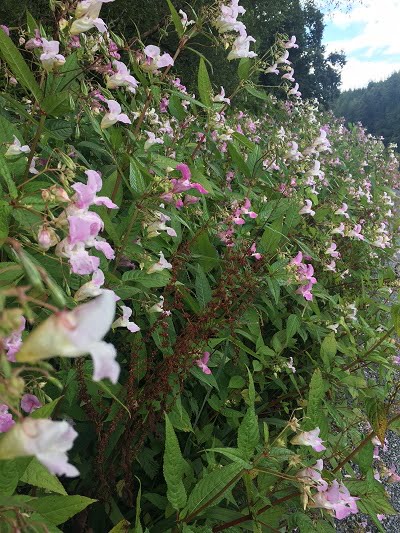New invasive weeds on the radar
A national trade body is urging landowners to be alert to a growing number of invasive weeds now being controlled by EU regulations.
The European Commission has recently added a further nine plant species to the current list of 14 species covered.
Included in the list is Giant hogweed – which produces sap which is extremely toxic to the skin in sunlight, making it a danger to public health – as well as Himalayan balsam.
Professor Max Wade, Chairman of the Property Care Association’s Invasive Weed Control Group, is advising landowners to be aware of the species involved and seek specialist advice on the issue as required.

Professor Wade said: “The associated restrictions and obligations came into force at the beginning of August for these nine species.
“While the legislation required to pass the national obligations onto individuals, in the form of sanctions and penalties, is not currently in place, such legislation is under development, so landowners should start getting prepared.
“The plants can be divided into two groups, the first comprising those that are present in the UK and Ireland and are recognised as weeds, and those which could become a threat in the future.
“The first group features Nuttall’s waterweed, Giant rhubarb, Giant hogweed and Himalayan, or Indian, balsam.
“The second group is made up of species that are either not yet present in the wild, i.e. present outside cultivation, or are very rare in the UK and/or Ireland including Alligator weed, Milkweed, Japanese stiltgrass, Broadleaf, or Variable-leaved, watermilfoil and Crimson fountaingrass.
“The PCA will keep an eye on all these species and issue warnings should there be any occurrence of them in the wild.”
Through its Invasive Weed Control Group, the PCA is producing guidelines on the management of these species, including how to prevent their spread, the implementation of a rapid response and control measures.
For those seeking further advice, the PCA’s Invasive Weed Control Group provides a means of identifying specialist contractors and consultants with the expertise to control and manage invasive species.
Members can be found in the ‘Find A Specialist’ section of the association’s website, along with more details on invasive weeds in general, at www.property-care.org/homeowners/invasive-weed-control.
The latest insight can also be gained at the PCA’s Invasive Weed Control Group annual conference.
Taking place on Thursday, 23rd November 2017, at The Møller Centre, Cambridge, this year’s conference – entitled ‘Management, Understanding and a Look To The Future’ – is set to attract leading figures from across the public and private sector, discussing cutting-edge strategies to deal with non-native invasive plants.
Professor Wade added: “It’s a subject which is becoming more and more significant. Invasive weeds are growing in number and the legislation surrounding their control is becoming increasingly complicated.
“Initially the focus was on just two or three plants, but over the last few years the number has increased significantly and we are now looking at about fifty different types.
“These plants can cause a wide range of problems. In their very name they are invasive and, therefore, will displace the native plants so from an environmental point of view they’re very undesirable. They also have a significant economic impact –there can even be health implications too.”
More details on the conference can be found here.